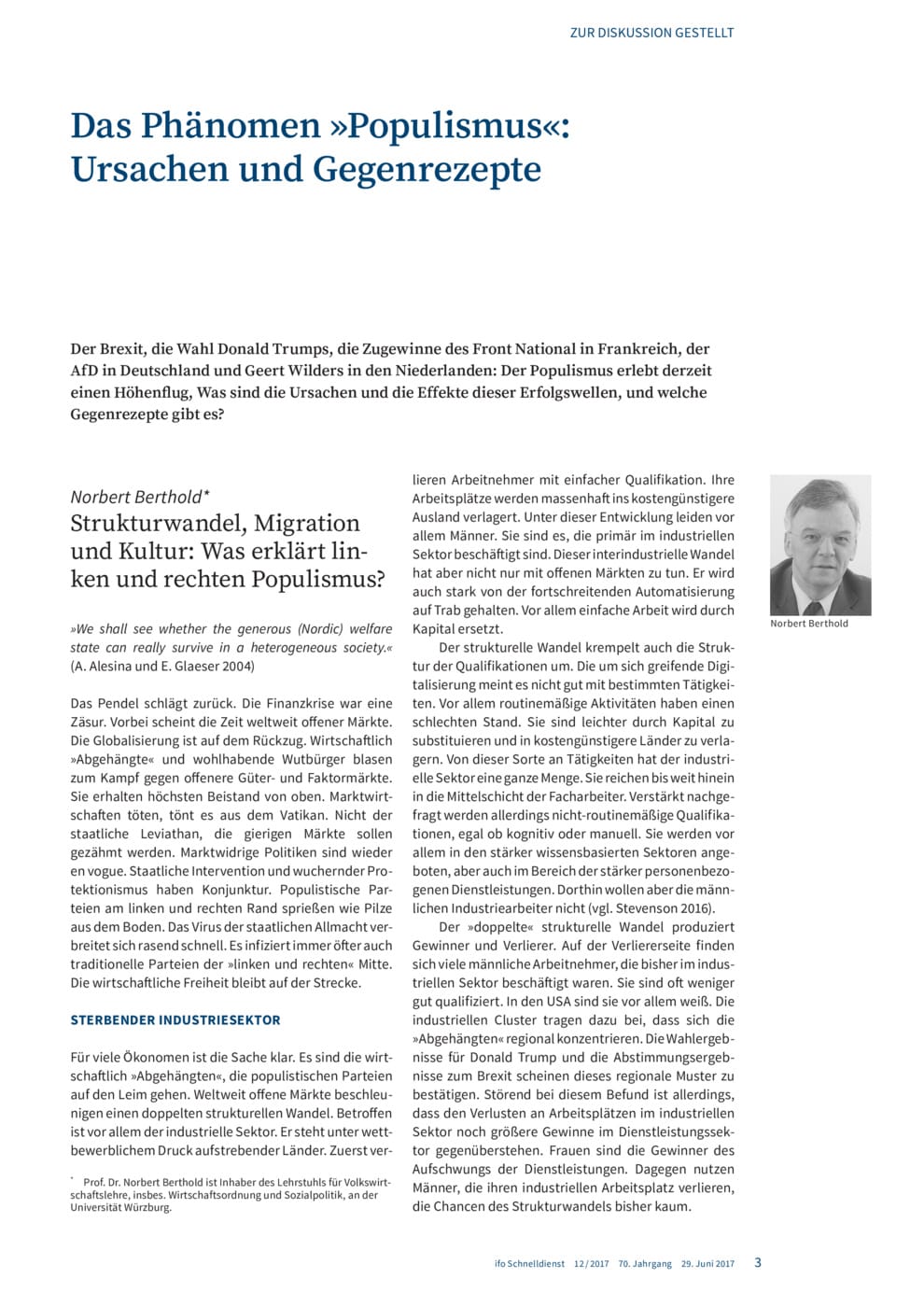The Phenomenon of “Populism”: Roots and Remedies
ifo Institut, München, 2017
ifo Schnelldienst, 2017, 70, Nr. 12, 03-21

Brexit, Donald Trump’s election, the gains made by the Front National in France, the AfD in Germany and Geert Wilders in the Netherlands are all signs of the heady rise of populism. What are the causes and the implications of this success wave? According to Norbert Berthold, University of Würzburg, there is significant evidence that globalisation promotes populist developments. More important drivers, however, seem to be technical progress since it eliminates low-skilled jobs, and migration flows into rich countries. Cultural factors, information gaps, prejudices and stereotypes play a key role. Adalbert Winkler, Frankfurt School of Finance & Management, believes that one of the reasons behind the surge in populistic currents is the significant increase in the number of people who feel left behind by the financial, euro and refugee crises. In his view, the traditional political parties have proven unable to cope with these crises. After analysing data from 380 districts of Britain, Sascha O. Becker, Thiemo Fetzer and Dennis Novy, University of Warwick, conclude that factors like demographics, education and the structure of the UK economy had a far greater influence over the Brexit vote than factors directly related to the EU. For Marianne Kneuer, University of Hildesheim, the crises were certainly a trigger, but not the cause of the current rise in populism. This has deeper structural roots: namely economic uncertainty, as well as rising inequality, the perception of losing out from globalisation and fear of a loss of social status. Moreover, representative democracy is suffering from a serious crisis of confidence and populists are benefiting from the functional deficits that have permeated traditional parties and the political landscape over the years. Nikolaus Kowall, Forschungsinstitut für gesellschaftliche Weiterentwicklung, Dusseldorf, believes that the reallocation of resources in the context of globalisation constrains the scope for state intervention. The loss of sovereignty at a nation state level, together with right-wing populism, has created anti-modern political currents, which explicitly seek to restore the primacy of politics at a national level. Europe could respond by moving towards deeper integration and, at the same time, halting any measures to further integrate the EU into the global market.